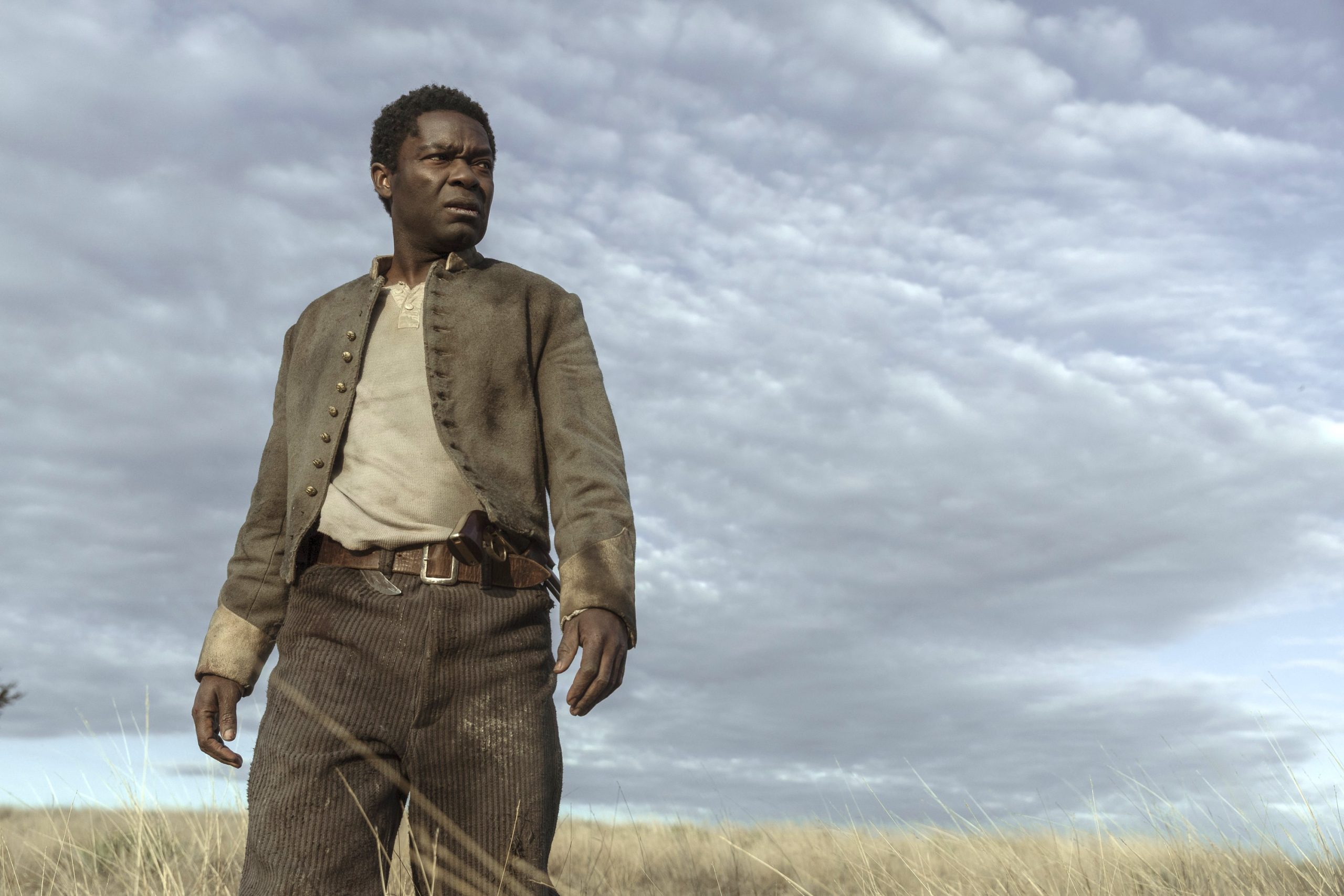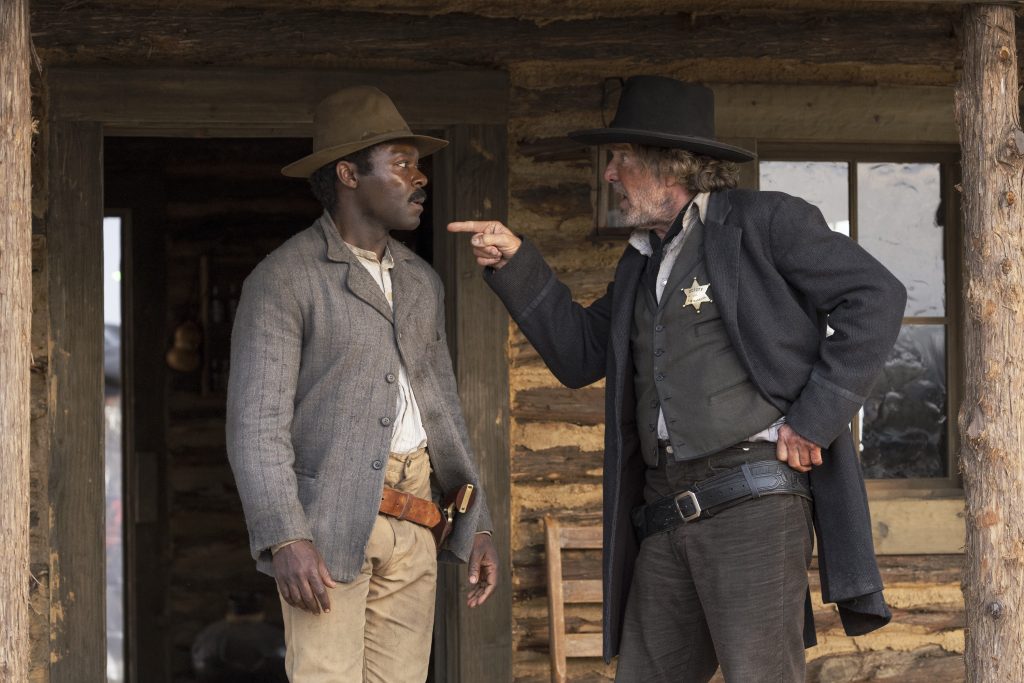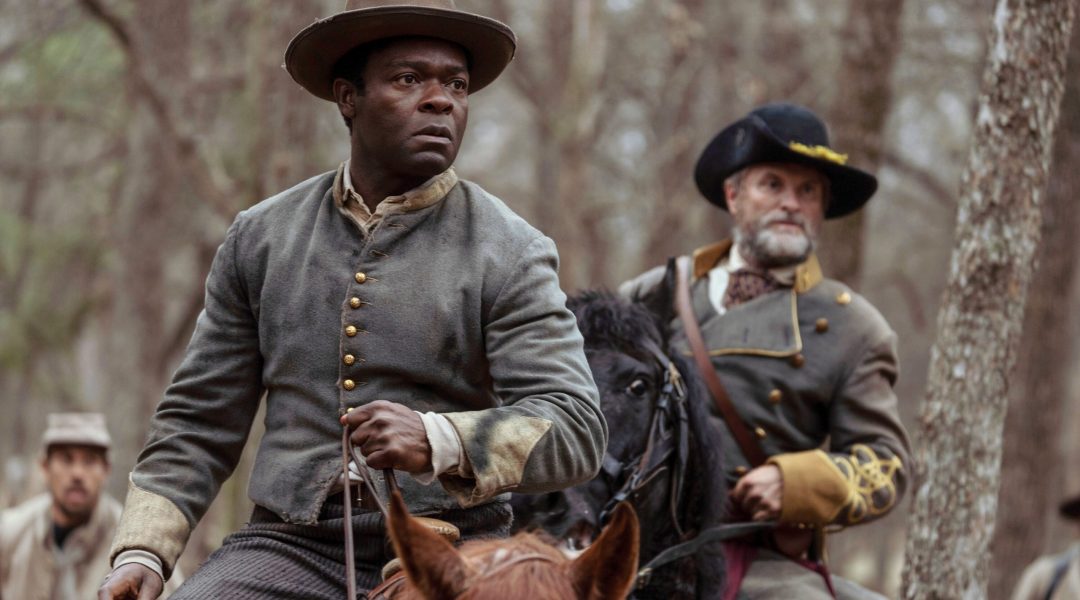The first two episodes follow the legendary hero from enslavement to self-determination.
Here are some random thoughts prompted by watching the first two episodes of Lawmen: Bass Reeves, the new limited-run series starring David Oyelowo as the legendary slave-tuned-lawman. (The Taylor Sheridan-produced drama premiered Sunday on Paramount+, and episodes are available for viewing on the streaming service.) Please keep in mind: There will be scads of spoilers here, so proceed at your own risk.

-
- Series creator Chad Feehan and director Christina Alexandra Voros do a fine job of establishing right from the start that Bass Reeves (arrestingly well played by David Oyelowo) is at heart a decent and honorable individual — even when his best attributes might work against him. During the thrilling Civil War skirmish in 1862 Pea Ridge, Arkansas that kicks off the narrative, Bass demonstrates both courage under fire and loyalty to his master, George Reeves (Shea Whigham, making the absolute most of a brief but key role), who has taken the resourceful slave along for backup while fighting for the Confederate cause. And Bass, bless his heart, actually believes his owner — a guy so cultured, he quotes Tennyson’s “The Charge of the Light Brigade” to rouse his men during battle — will grant him his freedom if he wins during a card game. But when Bass realizes George is a despicable liar and, worse, a scurvy cheat, he expresses his outrage nonverbally. And, really, can you blame the guy?
-
- Also established early on: Jennie (Lauren E. Banks), Bass Reeves’ wife, is a smart and tough-minded woman who seems to be far more practical than her husband. When he returns to the Reeves Ranch in Grayson County, Texas, after taking his leave from (and almost taking the life from) George Reeves, Jennie lovingly but firmly tells Bass to vamoose and never look back. Later on, in 1875 Arkansas, during the Reconstruction Era, she shatters the conventional Western cliché of the fretful woman who doesn’t want her man to engage in gunplay by actually encouraging Bass to accept the offer of work as a “posse man” by U.S. Deputy Marshal Sherril Lynn (Dennis Quaid) because, well, things are not working out so well on their farm. Not only that: They have a passel of children to support. And sometimes, a man — even a family man — has to do what a man’s got to do.
-
- Lynn drops by with the job offer because he needs someone who can speak Choctaw and is good with a gun — just two of the talents Bass honed while hiding out in Indian Territory for years after fleeing the Reeves Ranch. We see some highlights from Bass’ time in exile during Part I, including his days in Seminole Nation (evidently, when it comes to speaking Native American languages, Bass is multilingual) and his relationship with Sara Jumper (Margot Bingham) and her son Curtis (Riley Looc). Bass has no idea that the Civil War has ended until a group of Union soldiers stop for food and supplies at the Turkey Creek Trading Post with a bunch of Confederate prisoners — including Maj. Esau Pierce (Barry Pepper), who recognizes Bass from the days when the former slave fought by George Reeves’ side. “Freedom’s a good color on you,” Pierce notes — just before his armed allies show up to free the Confederates and kill their Union captors. Unfortunately, Curtis winds up dead as collateral damage. Bass tries to comfort Sara for the loss of her boy: “He died brave.” She counters: “He lived brave.” She tells Bass to skedaddle and try to do the same.

-
- Cue the touching reunion between Bass and Jennie in Fort Smith, Arkansas. At first, when he sees her on the street with a child, he fears the worst — that she has settled down with another man. Not to worry, though: The child is his, leading to a Part I conclusion that suggests there is happily-ever-aftering in store for the couple. Trouble is… Well, I told you about the troubles they faced with their farming, didn’t I?
-
- So Bass winds up accompanying Sherrill to the Dead Line, an off-the-grid territory where, as Sherrill explains, “There ain’t no laws. Only outlaws.” Sherrill promises a reasonable division of labor: “You do the serpent’s tongue, I do the roughhousing.” Not surprisingly, however, Bass has to do his own share of straight shooting as they pursue a Choctaw bad guy named One Charlie. But even he is aghast when he sees just how ruthless Sherill can be while enforcing his brand of rough justice. “Sometimes,” the deputy marshal tells Bass, “you got to be judge, jury and executioner,” something Sherill demonstrates while setting fire to One Charlie’s cabin, and Charlie himself. Bass puts the blazing outlaw out of his misery with a well-placed rifle shot — then ends his partnership with Sherrill by punching out the lawman. Fortunately, Sherrill doesn’t hold a grudge.
-
- How great is Dennis Quaid as Sherrill? He makes it entirely believable when Sherill reappears at Bass’ farm with a no-hard-feelings employment proposition. “You are the most earnest man I have ever met,” he tells Bass. “Which is likely to get you killed one day.” Even so, “You got sand for this. Most men don’t… So I took some of your earnestness to Judge Parker… And he wants to make you a goddamn U.S. Deputy Marshal.” Here and elsewhere, Quaid stakes a strong claim for future awards as Best Supporting Actor. No kidding.
-
- Once again, Jennie encourages her man to saddle up and hunt down varmints. Meanwhile, she’ll stay at home to watch over their expanding brood of children. She’s keeping an especially close eye on their young daughter Sally (Demi Singleton), who’s already attracting attention from a nice young man named Arthur Mayberry (Lonnie Chavis). Which is a bit worrisome because, well, this show is produced by Taylor Sheridan. And we all know what happened to Ennis and Elsa in Sheridan’s 1883, right?
-
- The final scene of Part II is something of a tease, since it indicates Bass is about to make a serious career advancement without actually showing him being sworn in by Judge Isaac Parker. And least, not yet. (Be patient: We’ll get to see the great Donald Sutherland as the notorious “Hanging Judge” in Part III.) But there already appears to be no doubt about the answer to the pointed question Sherrill Lynn poses to Bass: “Do you think you can handle the weight of the badge?”














